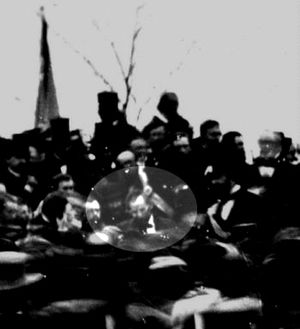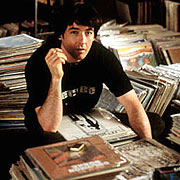“A dental chair and a first night were not so far apart except that on a first night there was never any novocaine. There was nothing to relieve the reality of complete exposure.”
John P. Marquand, Women and Thomas Harrow
Archives for 2013
TT: So you want to see a show?
Here’s my list of recommended Broadway, off-Broadway, and out-of-town shows, updated weekly. In all cases, I gave these shows favorable reviews (if sometimes qualifiedly so) in The Wall Street Journal when they opened. For more information, click on the title.
BROADWAY:
• Annie (musical, G, closing Jan. 5, reviewed here)
• Matilda (musical, G, nearly all performances sold out last week, reviewed here)
• Once (musical, G/PG-13, reviewed here)
• Twelfth Night (Shakespeare, G/PG-13, closes Feb. 1, reviewed here)
OFF BROADWAY:
• Avenue Q (musical, R, adult subject matter and one show-stopping scene of puppet-on-puppet sex, reviewed here)
• The Fantasticks (musical, G, suitable for children capable of enjoying a love story, reviewed here)
• Fun Home (musical, PG-13, unsuitable for children, newly extended through Dec. 29, reviewed here)
• Hamlet/Saint Joan (drama, G/PG-13, remounting of off-Broadway production, performed in rotating repertory, closes Feb. 2, original production reviewed here)
• Juno and the Paycock (drama, G/PG-13, far too dark for children, extended through Dec. 29, reviewed here)
IN SARASOTA, FLA.:
• Show Boat (musical, G, remounting of Goodspeed Musicals production, suitable for bright children, closes Dec. 29, original production reviewed here)
CLOSING SOON OFF BROADWAY:
• Good Person of Szechwan (play, PG-13, extended through Dec. 8, reviewed here)
CLOSING SOON ON BROADWAY:
• The Winslow Boy (drama, G, too complicated for children, closes Dec. 2, reviewed here)
TT: Almanac
“While he listened to these strangers stumble over his lines, he was beginning to perceive the theatre’s utter lack of self-concealment. Everyone was involuntarily subjected to the criticism of everybody else, and it was a sort of criticism that demanded self-reliance or inordinate vanity or the help of others. He always understood afterwards why people in the theatre were always drawn together, apart from the rest of the world, and why so many of them were generous and considerately kind. You knew people better in the theatre than in other environments because you had to.”
John P. Marquand, Women and Thomas Harrow
TT: Off I go
 I’m off to Kansas City, where I’ll be lecturing tonight about Duke (about which more here). From there I fly to Miami, with an intermediate stop in Smalltown, U.S.A., my first visit there since my mother’s funeral. I return to Connecticut and Mrs. T late Sunday night.
I’m off to Kansas City, where I’ll be lecturing tonight about Duke (about which more here). From there I fly to Miami, with an intermediate stop in Smalltown, U.S.A., my first visit there since my mother’s funeral. I return to Connecticut and Mrs. T late Sunday night.
For all these reasons, you won’t be hearing anything more from me in this space until next week, save for the usual almanac entries and theatre-related postings.
See you around.
TT: Thoughts on another anniversary
 Any critic who’s forced to write short can’t help but find inspiration in the Gettysburg Address. Has anyone said more in fewer words? On the other hand, as Aaron Copland said of the music of Mozart, “Any incommensurable thing sets up within us a kind of despair.” What can a lesser writer possibly hope to learn from the Gettysburg Address beyond the painfully obvious fact that he’s not Abraham Lincoln?
Any critic who’s forced to write short can’t help but find inspiration in the Gettysburg Address. Has anyone said more in fewer words? On the other hand, as Aaron Copland said of the music of Mozart, “Any incommensurable thing sets up within us a kind of despair.” What can a lesser writer possibly hope to learn from the Gettysburg Address beyond the painfully obvious fact that he’s not Abraham Lincoln?
This is how Copland put it in an essay called “At the Thought of Mozart”:
Paul Valéry once wrote: “The definition of beauty is easy: it is that which makes us despair.” On reading that phrase, I immediately thought of Mozart. Admittedly, despair is an unusual word to couple with the Viennese master’s music. And yet, isn’t it true that any incommensurable thing sets up within us a kind of despair. There is no way to seize the Mozart music. This is true even for a fellow-composer, any composer–who, bring a composer, rightfully feels a special sense of kinship, even a happy familiarity, with the hero of Salzburg. After all, we can pore over him, dissect him, marvel or carp at him. But in the end there remains something that will not be seized. That is why, each time a Mozart work begins–I am thinking of the finest examples now–we composers listen with a certain awe and wonder, not unmixed with despair. The wonder we share with everyone; the despaire comes from the realization that only this one man at this one moment in musical history could have created works that seem so effortless and so close to perfection. The possession of any rare beauty, any perfect love, sets up a similar distress, no doubt….
That’s how I feel about the A Major Piano Concerto–and the Gettysburg Address. Mostly they inspire and console me, but they also remind me of the terrible, irreducible fact of human inequality, which isn’t quite what Lincoln had in mind. We are not what he was, or what Mozart was. All we can do is be who we are–and aspire, on occasion and insofar as possible, to be something better, something more.
* * *
Vladimir Horowitz plays the slow movement of Mozart’s A Major Piano Concerto, K. 488:
Charles Laughton recites the Gettysburg Address in Ruggles of Red Gap, filmed in 1935:
TT: Snapshot
Courtesy of Marc Myers, Peggy Lee sings “Baubles, Bangles, and Beads” in 1959:
(This is the latest in a series of arts-related videos that appear in this space each Monday and Wednesday.)
TT: Almanac
“Granted that theatre, if it was good, was a distillation of life, the two were not interchangeable. There was always exaggeration in the theatre, and necessarily insincerities gave an illusion of truth. No living people were ever so good or so bad as those who spoke the lines.”
John P. Marquand, Women and Thomas Harrow
TT: Life-sized
Paul Moravec, my operatic collaborator, sent me this excerpt from Julian Barnes’ Levels of Life, in which Barnes describes what happened to him after his wife died:
I fell into a love of opera. For most of my life it had seemed one of the least comprehensible art forms. I didn’t really understand what was going on…but most of all, I couldn’t make the necessary imaginative leap. Operas felt like deeply implausible and badly constructed plays, with characters yelling in one another’s faces simultaneously…Now it seemed quite natural for people to stand onstage and sing at one another, because song was a more primal means of communication than the spoken word–both higher and deeper…an art in which violent, overwhelming, hysterical and destructive emotion was the norm; an art which seeks, more obviously than any other form, to break your heart. Here was my new social realism.
What fascinates me about this passage is that I find it utterly alien to my own experience–though not for the reason that you may suspect. The truth is that opera has always seemed real and natural to me. I’m not an emotionally extravagant person by any means, but even so, there was never a time in my life when I had a problem with the notion that people might sing to one another on stage, or that it’s “realistic” to expect to have your heart broken by life.
 No doubt this has something to do with the fact that I became a musician right around the time that I entered puberty, and that I’d been listening closely and attentively to pop music long before that. While I didn’t hear my first opera, La Bohème, until I was in high school, I was already well prepared for its emotional content by my previous experience of pop music.
No doubt this has something to do with the fact that I became a musician right around the time that I entered puberty, and that I’d been listening closely and attentively to pop music long before that. While I didn’t hear my first opera, La Bohème, until I was in high school, I was already well prepared for its emotional content by my previous experience of pop music.
As Nick Hornby famously put it in High Fidelity:
What came first–the music or the misery? Did I listen to music because I was miserable? Or was I miserable because I listened to music?…The unhappiest people I know, romantically speaking, are the ones who like pop music the most; and I don’t know whether pop music has caused this unhappiness, but I do know that they’ve been listening to the sad songs longer than they’ve been living the unhappy lives.
This is both clever and, up to a point, valid. On the other hand, I discovered as I grew older that both pop music and opera do in fact portray the pains and pleasures of love in a heightened but nonetheless recognizably real way. The key difference between the two art forms is that opera embeds this heightened mode of expression in a theatrical framework. Beyond that, though, I’m not so sure that there’s much of a difference between what Frank Sinatra was doing when he sang “One for My Baby” and what Maria Callas was doing when she sang “Vissi d’arte.”
Now that I’m in the business of helping to create new operas, I feel that an indispensable part of my job is figuring out how to get this point across to contemporary listeners who suffer from the mistaken notion that opera is somehow “irrelevant” to them. Unless you have no inner life at all–unless you have no notion of what it feels like to have your heart broken by love or loss or treachery–it couldn’t be more relevant. All you have to do is open your eyes and ears and be fully present in the moment, and what you see and hear on stage will make the most powerful kind of sense imaginable, in exactly the same way that a Shakespeare play can make perfect sense to a viewer who doesn’t fully understand the language that the actors are speaking.
How to persuade the stubborn skeptic that this is so? That’s not a question to be answered in a sentence or two. But Julian Barnes points the way.
